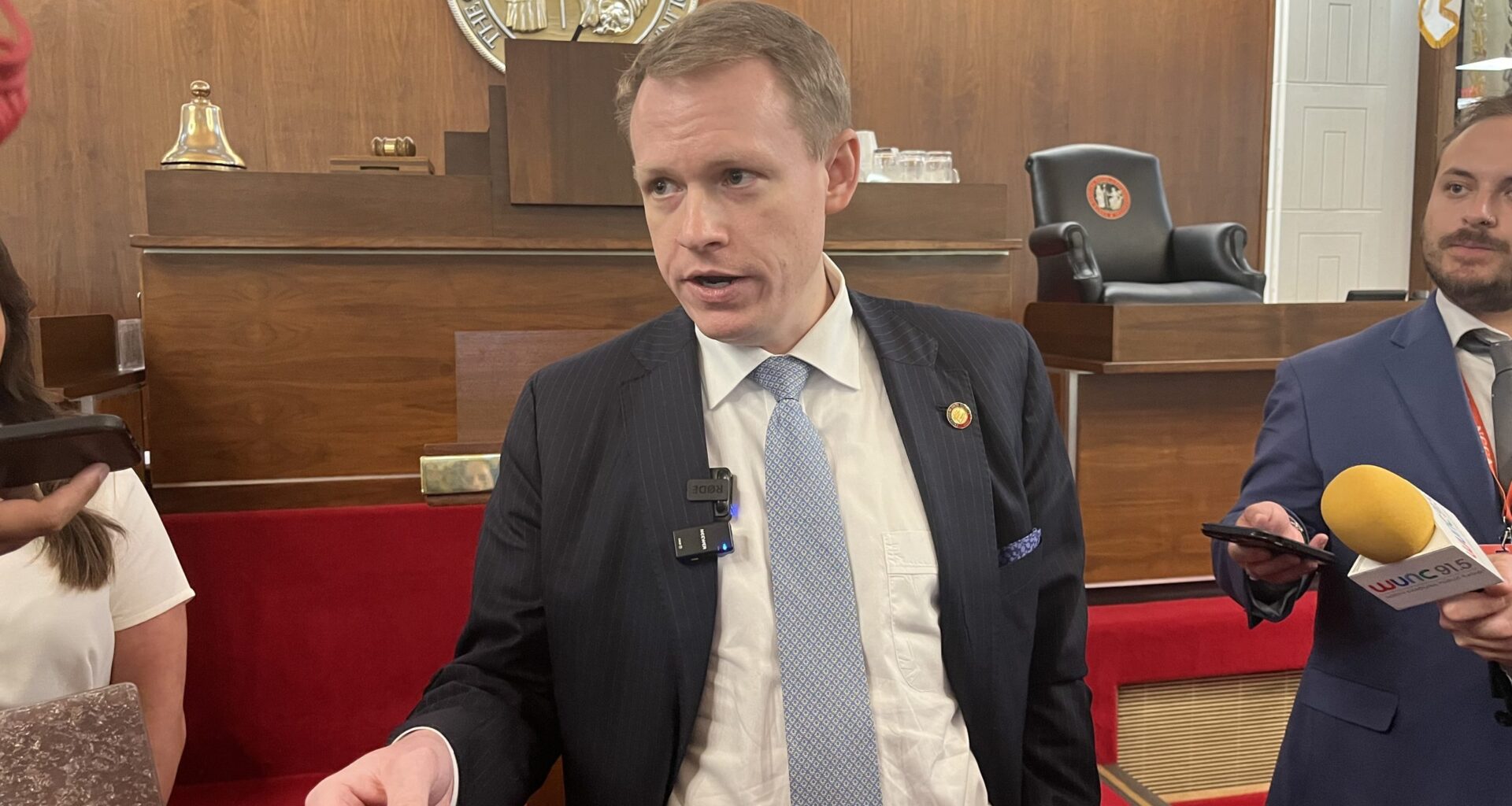By Grace Vitaglione
The North Carolina House of Representatives passed its own “mini” budget on June 25, a day after the Senate approved a stopgap spending proposal that would keep state operations running until deadlocked lawmakers can agree on a full budget.
It’s looking more likely that state lawmakers will leave Raleigh without approving a state budget before the new fiscal year starts on July 1. Now, leadership may be at an impasse over competing “mini” budget provisions as well.
House Speaker Destin Hall (R-Granite Falls) said outright that the House would not concur with the Senate’s plan, which passed June 24, as it was not really a “mini budget.”
“It sort of creeps into trying to get as close to a comprehensive budget as possible without having one,” he said. “Our position is that if we’re going to do a comprehensive budget, then let’s do a comprehensive budget.”
Senate Leader Phil Berger (R-Eden) retorted it’s not likely that a budget in any form will pass this week.
The House’s narrower spending proposal, split between House Bill 192 and Senate Bill 177, only includes the “must do’s,” for the next month, said Rep. Donny Lambeth (R-Winston Salem). On the health side, that means tweaks to Medicaid funding and eliminating 20 percent of vacant positions across all state government agencies, departments and institutions.
The plan would also increase salaries for public school teachers by an average of 6.4 percent over the next year, said Rep. Erin Paré (R-Holly Springs) in committee. State employees would receive a 2.5 percent salary increase on average.
Many of these provisions are copied over from the House budget passed in May — including cutting funds to the Healthy Opportunities Pilot, a Medicaid program that tackles nonmedical health needs of low-income North Carolinians.
Rep. Lindsey Prather (D-Candler) tried to run an amendment including funding for the pilot in a House appropriations committee, but it failed. Lambeth admitted that the concept of the program is good but said the savings don’t outweigh the costs.
A review of the Healthy Opportunities Pilot had shown that it was saving as much as $1,020 each year for each Medicaid beneficiary who’s participating in the program.
Funding tweaks for Medicaid and others
The House’s mini budget would direct $500 million to funding the Medicaid rebase, those fluctuating annual costs for the program that provides health care services for more than 3 million low-income North Carolinians.
That’s the same level proposed in the House’s full budget, but it’s $200 million less than what forecasters at the Department of Health and Human Services say is needed in the coming year.
All of this wrangling over Medicaid dollars is occurring as Congress is debating future federal funding levels for the program, making forecasts for upcoming years more uncertain.
The mini budget would also cut about $18 million in funding for the state-authorized regional mental health services management organizations, known as LME-MCOs — about the same cut as previously proposed by the House. That plan said the reduction would be offset with money from the Mental Health and Substance Use Task Force Reserve Fund.
LME-MCOs use these funds for services to help uninsured and underinsured people with mental health, substance use and intellectual and developmental disabilities, among other needs, according to DHHS. The funds also support mental health crisis services for people who can’t pay for care.
The plan would also supplant a reduction of $8 million in state dollars to the child care subsidy fund with federal block grant funding. Child care subsidies help eligible low-income families pay for child care so parents can go to work.
Another proposed reduction of $7 million in state dollars to DHHS over the next year would be offset with money the state received from a settlement with Johnson & Johnson regarding deceptive marketing about the safety and purity of products containing talcum powder.
Funding shifts and cuts
The mini budget would essentially eliminate funding for the Medically Assisted Treatment in Jails grant program, which helps treat people with opioid use disorder while they’re in jail.
When someone spends time in jail without access to treatment for addiction, their opioid tolerance invariably declines. Then, when they post bail or are released, they could return to using drugs to cope with withdrawal symptoms or manage their drug cravings. They may use a dose far higher than their bodies can tolerate, making them more susceptible to a drug overdose.
Research from UNC Chapel Hill has shown that formerly incarcerated people in North Carolina can be 40 times more likely than the average person to die of an opioid overdose within two weeks of their release from jail or prison.
Access to medication for opioid use disorder in jails and prisons and the continuation of that treatment in the community helps prevent these kinds of deadly overdoses.
The spending plan would also repeal a reporting requirement for the Beginnings for Parents of Children Who are Deaf or Hard of Hearing program, which previously had to report to the legislature on how they use state funds.
The nonprofit supports children and families with hearing loss/those who are deaf or hard of hearing.
As it’s likely neither the House of Representatives nor the Senate’s mini budgets will become law, spending will continue at last year’s levels.
Republish This Story
Republish our articles for free, online or in print, under a Creative Commons license.
